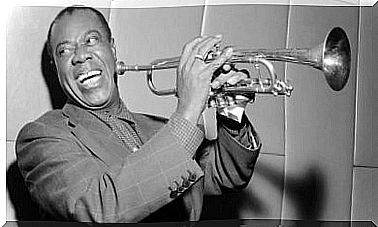Intellectual Humility, The Value Of Listening To New Ideas

We are all liable to make the mistake of thinking that our point of view is the most correct and that we are possessors of absolute truth. At times, we may even hold the strong conviction that we are experts on a subject and that no one knows more than we do – or at least that we know more than the people around us.
Whether it is due to years of experience, dedication to the study of a specific topic or simply “because it is like this” – as many claim –, we leave no room for doubts. We are closed in on our beliefs and it is impossible to get us out of there. It’s as if we’ve been awarded the Universal Experts Award, and any objection is labeled nonsense.
It’s funny how we sometimes get so attached to the belief that we know everything about a subject. Or maybe not, maybe we are one of those people who prefer to navigate the ocean of indecision or at least be open to what others can tell us. The point is that, whether for others or for us, intellectual humility often shines through its absence. Let’s delve a little deeper into this subject.
What is intellectual humility?
We have a bad habit of overestimating how much we know. We cling to what we believe and despise what others offer us. Instead of seeing a possibility of enrichment, what we see is an attack. In general, we believe we are better or more upright than others, something that can be seen more clearly in political, religious, and even lifestyle contexts.
Regarding this ability to voluntarily blindfold ourselves to become intellectually blind, journalist and writer Ryszard Kapuściński stated: “If among the many truths you choose only one and blindly pursue it, it will become a sham and you will become one. fanatic.” And there was no lack of reason. Enslaving ourselves to a belief and giving it the power of absolute truth makes change difficult and impedes our personal and social growth. In short, this limits us.
Against this backdrop, it appears that scientists have discovered – or rather brought to light – a concept – or antidote – known as intellectual humility. It is the ability to be flexible in the field of knowledge, that is, to be open to new ideas.
Intellectual humility would be something like a tendency to be receptive to other perspectives, accept that we are wrong and cultivate an open mind.

Origins of the concept of intellectual humility
This concept, which at first glance seems so new, has its roots in Socrates and later in the philosopher and theologian Nicolas of Cusa.
- In Plato’s Dialogues , we can see how Socrates was on a constant search for truth and recognized his ignorance as the starting point for finding that truth. In fact, one of his most famous phrases is “True wisdom is in recognizing one’s ignorance” .
- As for Nicolau de Cusa, we can use his work Da Douta Ignorância to understand the presence of intellectual humility in his thought. This philosopher thought that, due to human limitations – or cognitive limitations -, the sage cannot attain absolute knowledge, however much he wishes. In this way, he is aware that he ignores more than he knows. Obviously, he is aware of this, therefore he is learned , hence the learned ignorance .
As we can see, intellectual humility has been with us for a long time. This ability is configured as the intermediate point between believing that you know everything or, on the contrary, nothing. In other words, it is between intellectual arrogance, characterized by rigid minds, and intellectual cowardice resulting from extreme shyness.
Rigid Minds: The Illusion of Knowing Everything
Being humble on an intellectual level is being able to recognize that we don’t know everything and that what we think we know may be wrong. However, why is there so much intellectual self-centeredness these days?
While personal characteristics may be the biggest culprits, according to psychologist Tania Lambrozo of the University of California, technology adds to the illusion of knowledge.
Having access to any type of information with just one click creates the illusion that we have infinite knowledge about anything at our fingertips. If we add to this the ease of remembering an image, a word or information about a specific topic, the impression that we have learned successfully will be much greater.
On the other hand, mental rigidity is one of the personality traits most related to intellectual egocentrism. It is the tendency to discard approaches or ideas other than one’s own in order to accommodate and close themselves behind the bars of their own mental schemas. It would be that person who tries to adjust the world to his way of thinking, instead of trying to do the opposite.
- This mental rigidity usually originates in an excessive need for cognitive closure, that is, in the desire to eliminate any trace of uncertainty arising from a thought or a situation, as this would imply not being in control of the situation. Let us remember that uncertainty is one of the greatest enemies of human beings…

How to cultivate intellectual humility
We must be willing to know other perspectives, other arguments and, of course, embrace the changes. Because the ideas that we considered successful yesterday may be wrong or insufficient, who knows. But how to do this?
While there are several strategies that allow us to cultivate intellectual humility, it is essential to be aware that we need to silence and dethrone our ego. For this, it is necessary to admit that, at times, we are victims of cognitive biases and slaves of the belief that we are less prejudiced than others.
Opinions, both our own and those of others, vary with circumstances, and with ourselves ultimately. Because how many times have you found yourself doing or saying something you didn’t even think about a while ago? Think about it.
So, if we want to plant the seed of mental flexibility to cultivate the fruit of intellectual humility, we can:
- Accept that we make mistakes, that we can get confused.
- Practice active listening. That is, freeing our mind from thoughts when someone else is talking to us and putting our full attention on what they are saying. We will have to fight against this tendency so much of ours to prepare what we are going to say while someone else is talking to us.
- Respect other points of view. We don’t always have to agree with what other people tell us. However, this does not exempt us from respecting your opinions. We often fight a war that rarely has a winner: a war in which we try hard to convince the other. In fact, the opposite usually happens. The other is more attached to his own ideas and we to ours. So knowing when to stop is absolutely necessary.
- Be willing to learn from others. Flexibility and curiosity, the two essential ingredients for learning and fighting stiffness. Because if we don’t learn from others, who will we learn from?
- Questioning ourselves from time to time. An exercise in developing intellectual humility is to question our beliefs and, most importantly, our need to be right. Why do we always want to be right? The answer to that question may reveal the secret to us.
- Traveling or discovering other cultures. Discovering other lifestyles, other conceptions and views of reality, although it may shock us at first, is still a way to broaden our perspectives. Also, it’s a good way to train our brains to be open to finding alternatives.
The most important scientist of the 20th century, Albert Einstein, whose intelligence quotient was 160, also had the concept of intellectual humility in mind. A proof of this is his statement: “A true genius admits that he doesn’t know anything”. Just like Benjamin Franklin, who before starting an argument used to say: “Maybe I’m wrong, but…”.
As we see, intellectual humility is a good ally to fight the attachment to our beliefs and continue to grow on a personal and social level. The key that opens the door to learning, the antidote to arrogance and reminds us that the keys to our relationships do not lie in impositions or demands, but in understanding, flexibility, respect and the enrichment resulting from knowing other points by sight.









